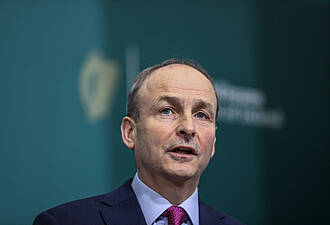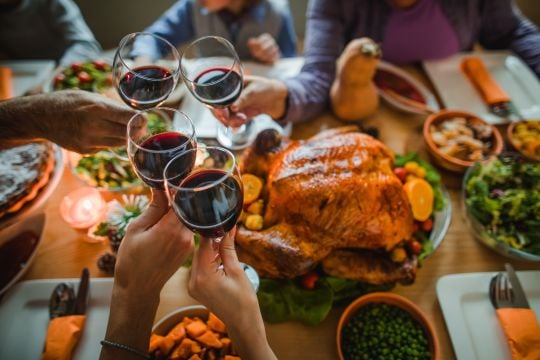Arrivals from Britain who are required to self-isolate should eat Christmas dinner in their bedroom this year, a member of the National Public Health Emergency Team (Nphet) has said.
Speaking on RTÉ’s Morning Ireland, Dr Colm Henry, chief clinical officer with the HSE, said the “painful advice” was necessary amid sharply rising Covid-19 cases and a more infectious strain identified in England.
Upgraded public health advice means those arriving from Britain since December 8th are now asked to self-isolate in their room for 14 days, rather than restricting their movements, which allows for mingling within their household.
"We appreciate how inconvenient this is, how painful this must be for people who have waited so long to come home, but we know this is a highly transmissible form of the virus,” Dr Henry said.
"Self-isolation means staying in your room in so far as possible, except for essential purposes. You should stay in your room to ensure you are not the means of transmission of this more transmissible form of the virus within the house."
Asked if this meant eating Christmas dinner in their room, Dr Henry said it "sadly" did mean that.
Painful
He said that self-isolating was not novel “in our collective national experience”.
“It is difficult, it is painful, we have learned to our cost that delay in taking action to prevent spread, transmission of the virus, we will pay for it if we do so."
It comes as more than 20 flights into Ireland from London in the first three weeks of December contained at least one passenger who subsequently tested positive for Covid-19.
Taoiseach Micheál Martin said infectious diseases experts have told him it is “inconceivable” that the new and more infectious strain of Covid-19 is not already in Ireland.

He said the new strain is likely a “key factor” in the recent surge in infections seen across the country.
The Taoiseach acknowledged it was a “huge ask” to request those arriving from Britain to self-isolate in their room and not spend Christmas Day with their families, but it was necessary to protect people’s health.
“It’s again because of this variant and the high transmissibility of this — they reckon it’s up to 70 per cent more transmissible than previous strains,” he said.
“We will learn more in the next two weeks about this new strain which may steady the situation ... but right now, we have to, in terms of isolation and self-isolation, people have to be very careful.”







